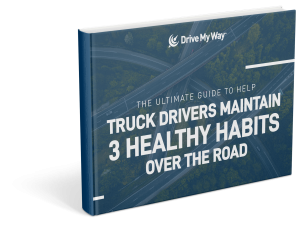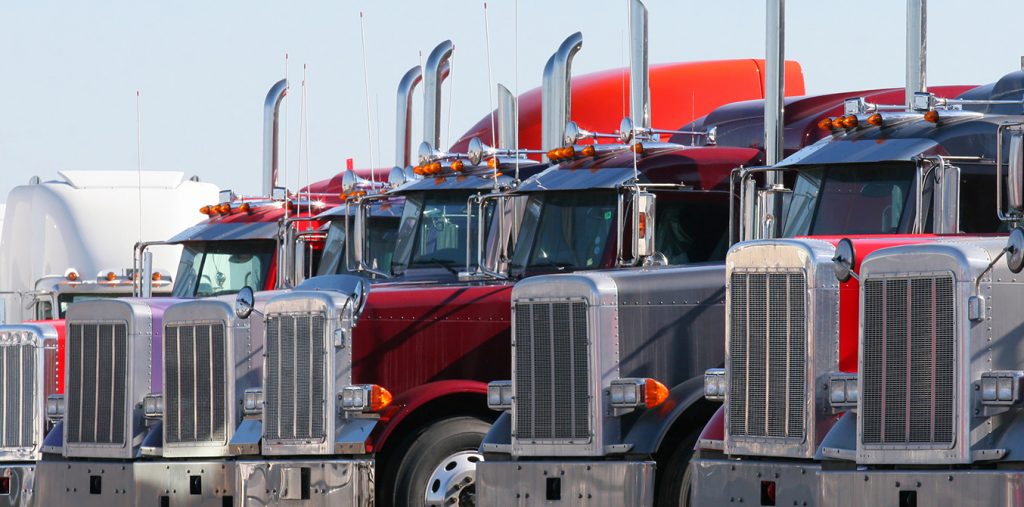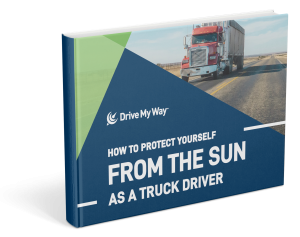
Stress. Everyone has stress in their lives. But for a truck driver, when stress impacts their life, it can truly be dangerous. If a driver is stressed and it impacts their thinking or decision-making, it is something that needs to be addressed. Immediately. Because truckers are bombarded with distractions all day long while trying to concentrate and drive safely, it can be hard to find ways to reduce added stress from their lives. But we’ve found a few fundamental things that can help. Here are a few ways to easily reduce truck driver stress on the job.
Get Some Sleep
The best way to reduce your stress levels is to be proactive in getting enough sleep. Without the proper amount of sleep, your body struggles to function well. One of the first things affected is your thinking. Decision making is tougher, and your attention span may shorten. All these things will lead to additional stress over the course of the day.
Great advice for any trucker: be sure to get your required hours of shut-eye to maintain a healthy mind, and reduce stress during the day.
Get the best sleep by keeping up with your bedtime routine. Reduce lights and distractions once it’s bed time. Put away your electronics before you get into bed for the night. So that once your head hits the pillow, all you need to do is close your eyes and fall asleep.
Eat to Reduce Truck Driver Stress
Stress eating is a real thing. But what about eating to reduce stress? There are plenty of foods that are known to reduce stress. Foods chock full of vitamins and minerals are known to help fuel your body and help improve your mood. Counter to this, foods without any real nutritional value can have the opposite effect.
Eating sugar or high levels of caffeine might give you a short burst of energy, but leave you dragging later. That’s certain to cause additional stress, and make your day drag even worse.
Avoid foods with short-term effects, and stick with foods that will help you stay healthy for the long haul. Keeping a good balance of foods that taste good and are good for you is a great way to keep stress at bay on the road.
Clear Your Mind with a Story
Concentrating on the road and traffic all day can take a toll on your nerves. Many drivers like to listen to podcasts or stories during the day to help pass the time. Some drivers prefer to listen once the workday is done.
After a long day on the road, many truckers find listening to audiobooks a terrific way to unwind and relax.
Once you are parked for the night, get comfortable, close your eyes, and press play. Transport yourself into a story about history, science fiction, crime dramas, or something light and happy. You can find any number of apps for your phone or tablet to play the audiobooks.
Advice from a Trucker
We asked our Drive My Way Facebook followers to let us know what helps them reduce stress.
Tim Petruccio mentioned a few different things that help him:
-

Tim Petruccio
Increase following distances
3 to 4 mph less than traffic during volume times
- Turn off the outside noise (radio, phone calls, etc…)
- Remember you are in control. You have the final say when it comes to YOUR safety
- Get rest! Don’t spend 3 of your 10 hours on break, watching TV or gaming. Have a good meal, shower and then hit the rack
- Think about the things you love (family, places, pets, etc.). Then picture yourself returning safely to them
Keeping family and friends close in your mind really can help too. It’s always good to know that no matter how tough your day is, there’s always a way to make the next day better.
Let us know what you think. Sound off on our Facebook post and let us know what you do to help reduce your truck driver stress. We’d love to share your best ideas with our readers!

The Ultimate Guide for Truck Drivers to Maintain 3 Healthy Habits Over the Road
Download the complete guide for tips to easily maintain healthy habits over the road.
Download the Guide Now








 Finding a new
Finding a new 





